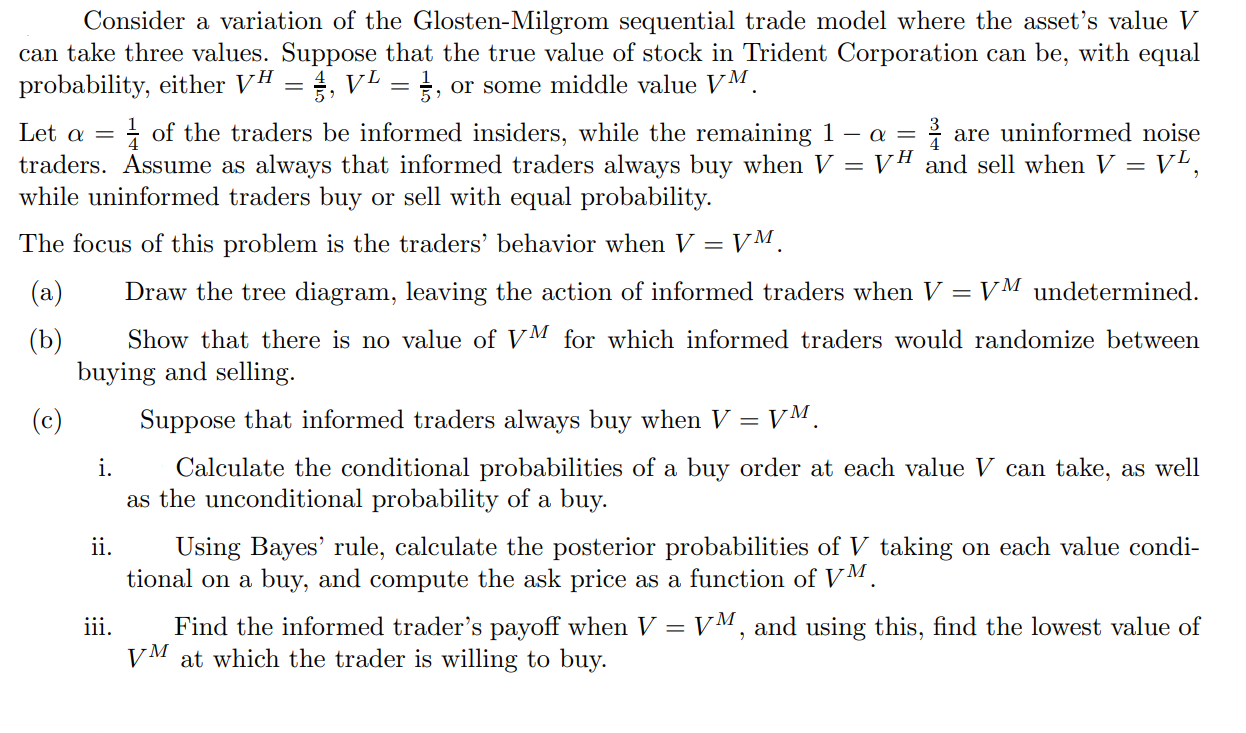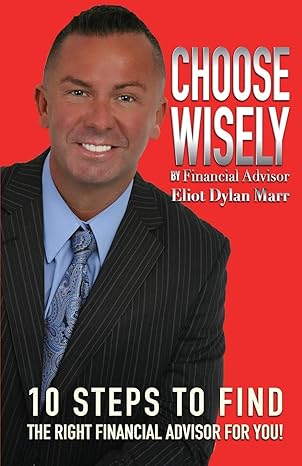
= Consider a variation of the Glosten-Milgrom sequential trade model where the asset's value V can take three values. Suppose that the true value of stock in Trident Corporation can be, with equal probability, either VH = }, VL = }, or some middle value VM. Let a = I of the traders be informed insiders, while the remaining 1 a = are uninformed noise traders. Assume as always that informed traders always buy when V = VH and sell when V = V., while uninformed traders buy or sell with equal probability. The focus of this problem is the traders' behavior when V VM (a) Draw the tree diagram, leaving the action of informed traders when V = VM undetermined. (b) Show that there is no value of VM for which informed traders would randomize between buying and selling. (c) Suppose that informed traders always buy when V VM i. Calculate the conditional probabilities of a buy order at each value V can take, as well as the unconditional probability of a buy. ii. Using Bayes' rule, calculate the posterior probabilities of V taking on each value condi- tional on a buy, and compute the ask price as a function of VM. iii. Find the informed trader's payoff when V = VM, and using this, find the lowest value of VM at which the trader is willing to buy. - = Consider a variation of the Glosten-Milgrom sequential trade model where the asset's value V can take three values. Suppose that the true value of stock in Trident Corporation can be, with equal probability, either VH = }, VL = }, or some middle value VM. Let a = I of the traders be informed insiders, while the remaining 1 a = are uninformed noise traders. Assume as always that informed traders always buy when V = VH and sell when V = V., while uninformed traders buy or sell with equal probability. The focus of this problem is the traders' behavior when V VM (a) Draw the tree diagram, leaving the action of informed traders when V = VM undetermined. (b) Show that there is no value of VM for which informed traders would randomize between buying and selling. (c) Suppose that informed traders always buy when V VM i. Calculate the conditional probabilities of a buy order at each value V can take, as well as the unconditional probability of a buy. ii. Using Bayes' rule, calculate the posterior probabilities of V taking on each value condi- tional on a buy, and compute the ask price as a function of VM. iii. Find the informed trader's payoff when V = VM, and using this, find the lowest value of VM at which the trader is willing to buy







